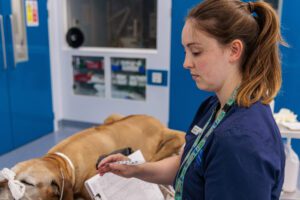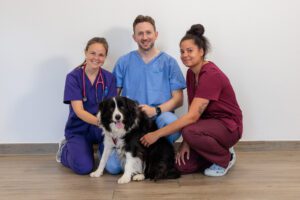Objective
To compare radiographic elbow arthrosis with arthroscopic cartilage pathology in Labrador retrievers with elbow osteoarthritis secondary to medial coronoid process (MCP) disease.
Study design
Retrospective epidemiological study.
Animals
Labrador retrievers (n = 317; 592 elbow joints).
Methods
Data were collected retrospectively (June 2007–June 2011) to identify Labrador retrievers with thoracic limb lameness and elbow pain, a complete set of elbow radiographs, and a comprehensive arthroscopic surgery report. Each radiograph was scored for osteophytosis on the anconeal process and ulnar subtrochlear sclerosis using a modification of the International Elbow Working Group (IEWG) scoring system. Elbows affected by traumatic MCP fracture, humeral condylar osteochondrosis, or ununited anconeal process were excluded. The arthroscopic report was used to generate a composite cartilage score (CCS; 0 = normal, 1 = mild, 2 = moderate, 3 = severe) for each elbow joint. Ordinal regression analysis was performed to test the relationship between radiographic arthrosis score and CCS.
Results
There was a significant relationship between radiographic elbow arthrosis and CCS (P
Conclusion
Radiographic arthrosis can be used to predict the severity of arthroscopic cartilage pathology in Labrador retrievers affected by MCP disease.
Research authors
Mike Farrell Jane Heller Miguel Angel Solano Noel Fitzpatrick Tim Sparrow Mike Kowaleski




